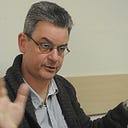Qur’an Burning: The Limits of Free Speech
By: Sam Vaknin, Brussels Morning
Both Freud and Marx maintained the view that all religions are mass psychegenic illnesses: socially sublimated delusional disorders. But many people hold dearer than life various artefacts associated with these beliefs, counterfactual as they may be.
Burning the Qur’an is an act intended to provoke pain and indignation in these faithful. It is nothing short of cruel and sadistic. Taunting the mentally ill should invariably be outlawed. There ought to be limits to free speech and this should be one of them.
This week, in Sweden, an Iraqi national, a temporary resident in that Scandinavian country, far right activist Salwan Momika, set fire to the holy book outside the central mosque in Stockholm, on June 28, just before Eid al-Adkha, a holy day in the Muslim calendar.
Equally shocking is the fact that he was allowed by the domestic courts to proceed with this barbarity unimpeded. The Swedish police could do nothing even when faced with the prospects of mass — and justified — civil unrest.
The Swedish government distanced itself from this uncivil public sacrilegious protest, criticizing it but making clear its impotence owing to the ill-conceived intervention of the judiciary.
The Swedish authorities called the demonstration “polarizing and offensive, disrespectful, a clear provocation, legal but not appropriate”. They opened an investigation on a charge of agitation against a national or ethnic group involving the 37 years old man who stamped on the book and tore it before he incinerated it gleefully.
In retaliation, Muslims the world over burned Swedish flags and the 57-members Organization for Islamic Cooperation called for collective action to prevent a recurrence of the desecration of the Qur’an.
The Swedish court’s decision is odd, to use an understatement. Burning the Qur’an is indisputably a form of hate speech directed at a religion, an instance of Islamophobia. International law prohibits it unequivocally.
The event has broader implications: Islamic Turkey is leveraging the incident to further delay the accession to NATO of Sweden in this month’s summit. Sweden’s Border controls have been enhanced. Putin reminded the world that such an act in Russia would be criminal because Russia respects “religious feelings”.
In their tome, “How Democracies Die”, the authors Steven Levitsky and Danial Ziblatt, expound on the gatekeeping function of political parties and courts. Extreme speech which challenges democracy and tolerance should be sidelined, they say.
This doesn’t go far enough. Such discourse should be outlawed. Some speech acts are illegitimate. The costs of free speech should always be a prohibitive and inhibiting consideration: who gets hurt or put at risk, what scarce resources are squandered, which collective interests are jeopardized, compromised, or sacrificed.
The sociologists Bradley Campbell and Roger Manning sounded the alarm about the rise of victimhood culture. Coupled with political correctness and woke tyranny, we have gone too far with moral relativism and anomie.
We need to re-establish firm guardrails and agree on a set of minimal immutable values. We then must apply them rigorously and ban words which have the overwhelming potential to turn into sticks and stones. We should not recoil in the face of naming and shaming, guilt-tripping and blame-shifting by self-styled victims. Whoever is unhappy with the West’s creed and its institutions can seek Putin’s brand of freedom in the Russian Federation, in the footsteps of Edward Snowden.
“Those who burn books will ultimately burn people”, quipped Heinrich Heine, memorably. A Jew, he had a premonition. The Qur’an is a book. The resurgence of the far right across Europe now seems to culminate in the cremation of books in public.
Have we learned nothing from history? This should have never been allowed to happen. Shame on the feeble-minded spineless judges who let this atrocity take place. Let this toxin be a tocsin, a wake up call.
Sam Vaknin, Ph.D. is a former economic advisor to governments (Nigeria, Sierra Leone, North Macedonia), served as the editor in chief of “Global Politician” and as a columnist in various print and international media including “Central Europe Review” and United Press International (UPI). He taught psychology and finance in various academic institutions in several countries (http://www.narcissistic-abuse.com/cv.html )
